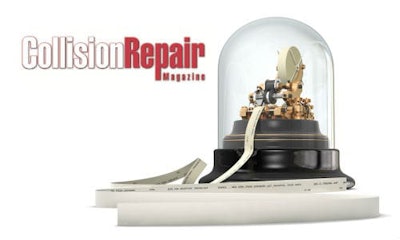
Toronto, Ontario — July 3, 2018 — In this week’s Tuesday Ticker, oil prices begin to bite and AutoCanada reassesses opportunities.
Recent good news about employment numbers in the U.S. had the Federal Reserve board feeling good about the economy. The Fed said it is increasingly confident it may raise interest rates a total of four times this year. But recent events in the bond market suggest the economy is not in as healthy as many think.
One of the most reliable indicators of a near-term recession is what analysts call an “inverted bond yield curve.” The yield curve is the difference between interest rates on short-term government bonds and longer-term government bonds. When the economy is healthy and normal the interest rate on a longer-term 10-year bond are higher than the rate on a shorter two year bond. This is the natural way of markets. There is more time for something bad to happen over the longer term, so there is more risk in holding a security that long. That means there is a higher interest rate on the longer term bond. For bonds with a shorter duration there is less risk, and so a lower interest rate. But on very rare occasions the interest rates on shorter term bonds rises higher than long term rates. The bond curve inverts. This typically only happens when bond holders think there is a near-term risk of a recession. In this case, interest rates on short-term bonds rise, while the rate on longer term bonds stay the same. Today, the bond yield curve is very close to inverting. Many think this is an indication that a recession is near. Today, of course, the threat of a trade war, as well as rising oil prices, are raising worries about economic performance. A rising cost of oil sends prices throughout the economy higher. Consumers suffer. Consumer spending slows. As it is, oil prices are near $75 a barrel. That’s high enough to begin having a negative effect on the consumer economy. And things could get worse yet. According to oil traders, even if OPEC increases production, the production lost from Iran and Venezuela will overwhelm the market. Since Trump pulled the U.S. out of the Iran deal the United States is demanding that other countries stop buying Iranian oil. Exports of crude from that country are dropping. This is the case in Venezuela as well. There the economy is collapsing, and so too are oil exports. For the global oil market this means the oversupply situation of the last few years is clearing. This summer is expected to bring record high levels of demand for gasoline. This is happening at a time supply is constrained. Some think prices could go higher yet. But if oil prices do go higher a recession is likely to follow soon after.
Auto-Canada
This past week AutoCanada announced that its board of directors had appointed a special committee of independent directors to review strategic alternatives that may be available to the company to maximize shareholder value. According to the press release, “As part of our ongoing review of the company’s strategy and performance, which has included discussions with management, our shareholders, and our financial and legal advisors, the board established a special committee of independent directors charged with completing a strategic review to explore a range of strategic and financial alternatives that could enhance shareholder value. In addition the special committee will evaluate potential changes to the Company’s Board of Directors,” said Paul Antony, chair of the special committee. Steven J. Landry, president and CEO was quoted as saying, “It is business as usual while we undertake this important process and at an operational level our focus continues to be on working with our dealers to ensure customers are being well-served in showrooms and service bays across our network. We are also focused on improving the efficiency of our operations, specifically targeting further reductions in our operating expenses.” A shareholder recently requested a strategic review of what it is AutoCanada is doing. The company seems to be setting out on a big to consolidate dealerships across North America. It will be interesting to see what the committee comes up with. Though, according to the press release, “AutoCanada does not intend to provide ongoing updates on the strategic review process unless further disclosure is required.” It was also recently announced that the chair of the board of AutoCanada would step aside. director for the last 12 years. The outgoing chair has recently been appointed to an executive role at a leading North American utility company and is no longer able to dedicate the requisite time to AutoCanada to fulfill his role as a Director. As a result, Paul Antony has been appointed as board chair and will begin transitioning into that role immediately. Mr. Antony is the President and CEO of MAP Investco and the founder, former CEO and Chair of CARPROOF Corporation. Antony will also serve as the Chair of the recently formed special committee tasked with completing a strategic review. CARPROOF is a major provider of automotive information concerning used car sales. The company gathers and sells information on vehicle history, appraisal and valuation. It’s interesting to see Antony coming in to head the strategic review and chair the board.























